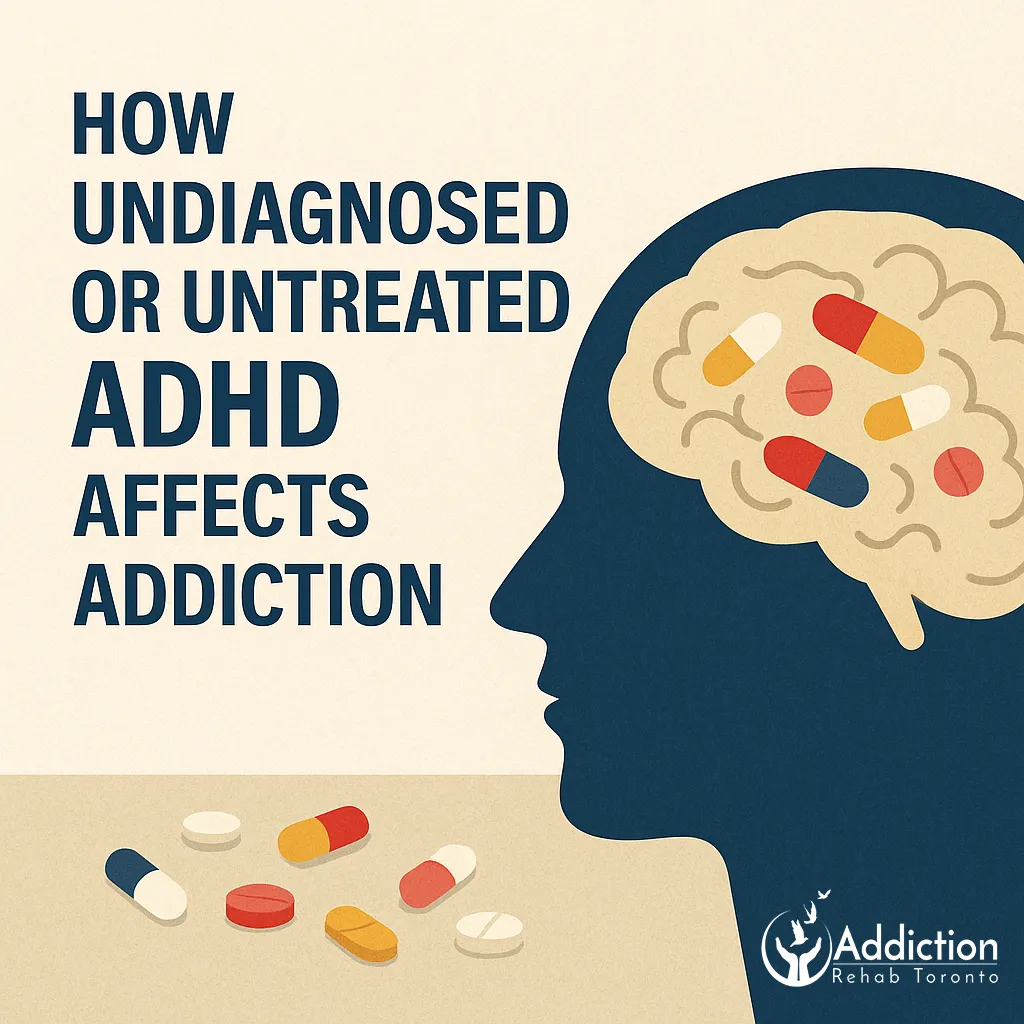
How Undiagnosed or Untreated ADHD Affects Addiction

How Undiagnosed or Untreated ADHD Affects Addiction
Living with undiagnosed or untreated Attention Deficit Hyperactivity Disorder (ADHD) can make navigating life’s challenges extremely difficult. When ADHD is overlooked, especially in teens and adults, the risk of developing substance use disorders increases significantly, almost exponentially. This blog article explores why these conditions are so deeply connected, the dangers of untreated ADHD, and what can be done to support lasting recovery.
The Overlap Between ADHD and Addiction
High Co-Occurrence:
Individuals with ADHD are up to 2–3 times more likely to develop substance use disorders than the general population. This overlap is especially noticeable with alcohol, nicotine, cannabis, and stimulants.Why the Link?
ADHD’s core challenges—inattention, impulsivity, and emotional dysregulation—often lead to increased risk-taking, poor decision-making, and a craving for relief, raising susceptibility to addiction.
How Undiagnosed or Untreated ADHD Fuels Addiction Risk
Self-Medication:
Many people with undiagnosed ADHD turn to substances (alcohol, cannabis, stimulants, etc.) to manage restlessness, anxiety, boredom, or persistent feelings of failure and inadequacy.Substances can offer short-term relief but ultimately worsen focus, impulsivity, and emotional volatility while deepening dependence.
Unmanaged Impulsivity & Poor Judgment:
ADHD is linked to impulsivity and difficulty delaying gratification, leading to riskier choices, experimentation with substances, and challenges in stopping once use begins.Academic and Work Struggles:
Unrecognized ADHD can result in repeated failures, social conflict, and low self-esteem in school or the workplace. Some individuals turn to substances to cope with shame, boredom, or chronic underachievement.Missed Diagnosis in Adults:
Many adults with ADHD were never diagnosed as children. Their struggles may be mislabeled as laziness, anxiety, depression, or “just bad habits,” leading to chronic stress and a reliance on substances for relief.
The Risks of Late Diagnosis
Longer Struggle, Greater Damage:
The longer ADHD goes untreated, the higher the probability of substance misuse. Early intervention dramatically reduces addiction risk and improves lifelong outcomes.Poor Treatment Outcomes:
Addiction recovery programs that ignore underlying ADHD may struggle to keep clients engaged and sober. Especially when impulsivity and distractibility are not addressed.
Integrated Treatment Works
Best practices acknowledge both ADHD and addiction:
Comprehensive Assessment:
All individuals entering addiction treatment should be screened for ADHD and other mental health concerns.Combined Care Approach:
Treatment plans that blend addiction counseling with ADHD-focused therapies (such as medication, executive function coaching, and cognitive-behavioral therapy) yield better engagement and outcomes.Education & Support:
Informed clients and families are better equipped to manage symptoms, handle triggers, and prevent relapse.
Untreated ADHD Is a Hidden Driver of Addiction
To conclude, leaving ADHD unrecognized and untreated not only worsens daily struggles but sharply raises the risk for addiction and can hinder recovery. If you or someone you care about faces repeated challenges with focus, follow-through, or emotional control alongside substance use, consider seeking an assessment for ADHD.
Integrated treatment saves lives. Early diagnosis, the right therapies, and support unlock the possibility of long-term recovery and fulfillment.
If you need help, reach out to us by phone or website. No matter what you are going through, we are here for you. Every step of the way.